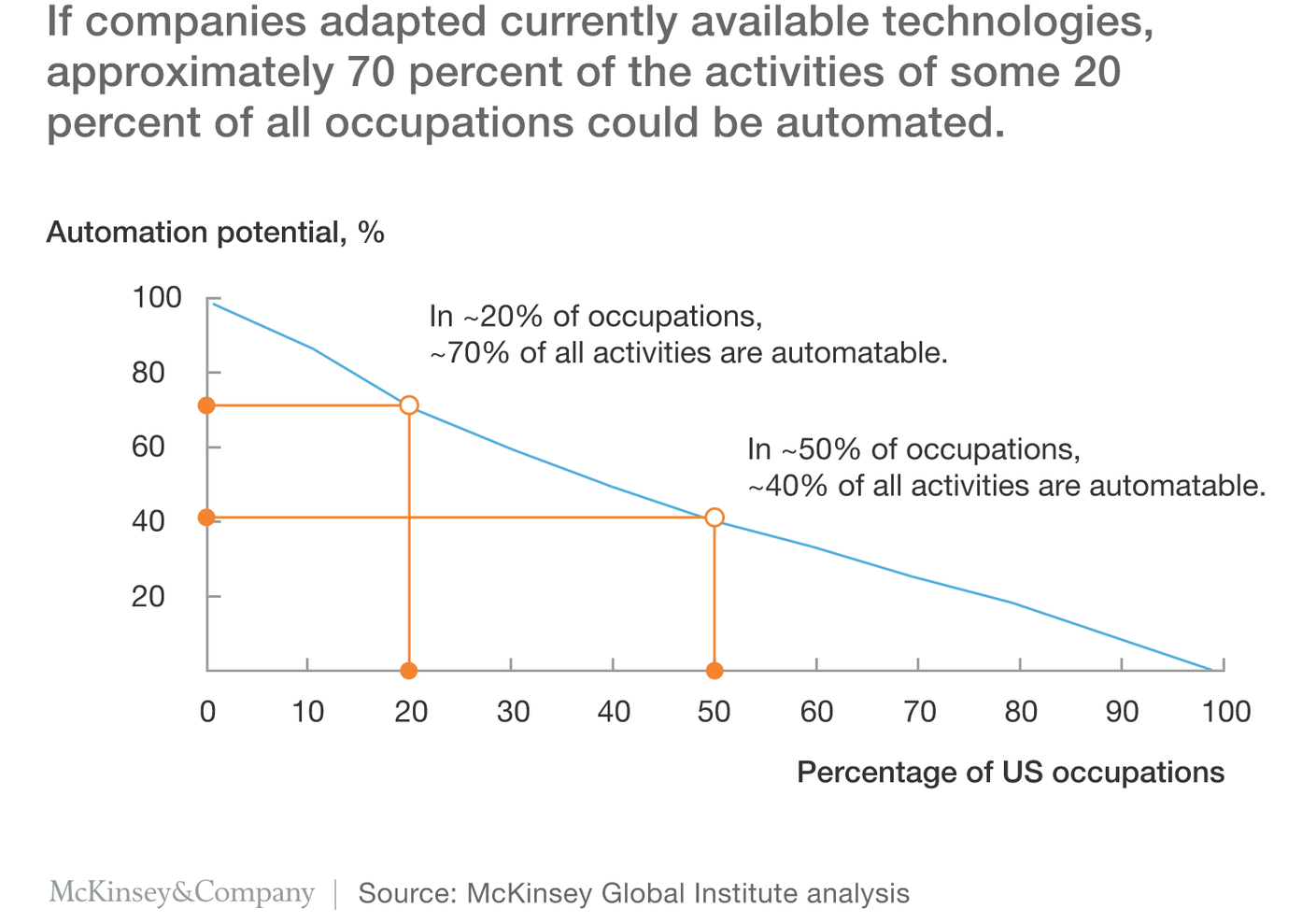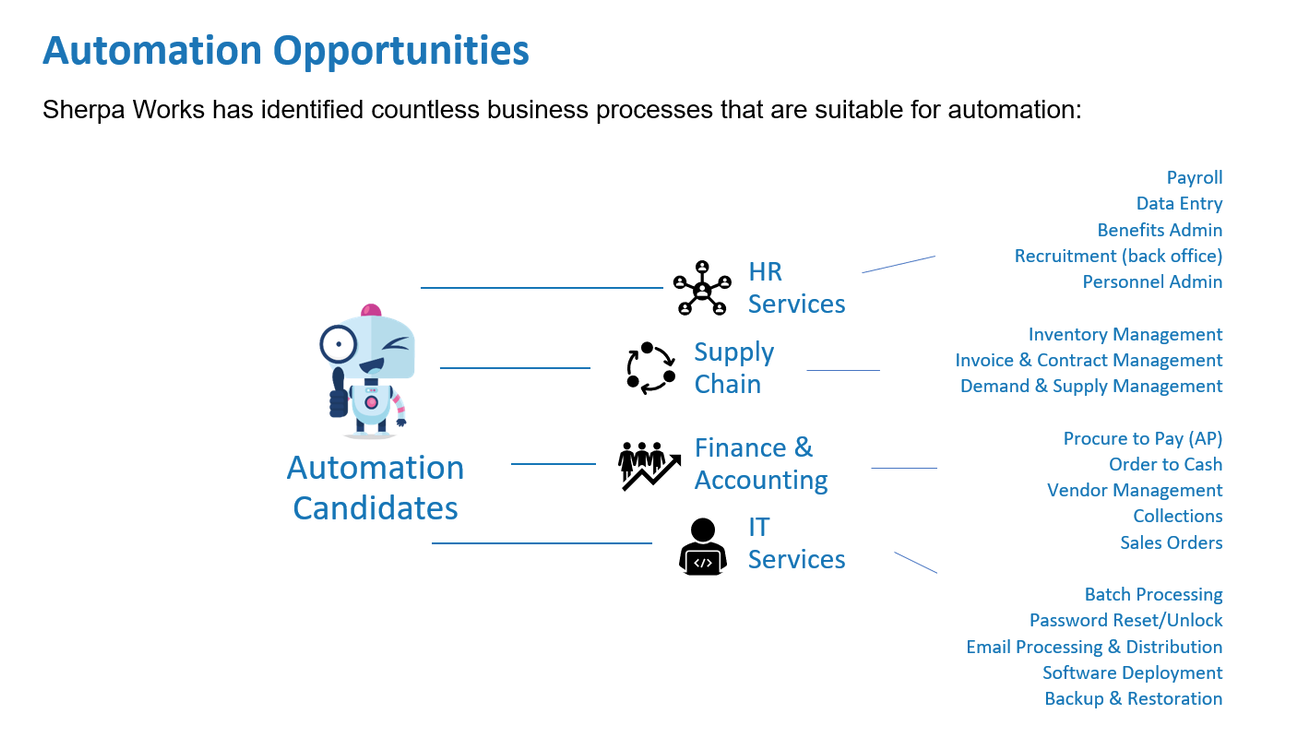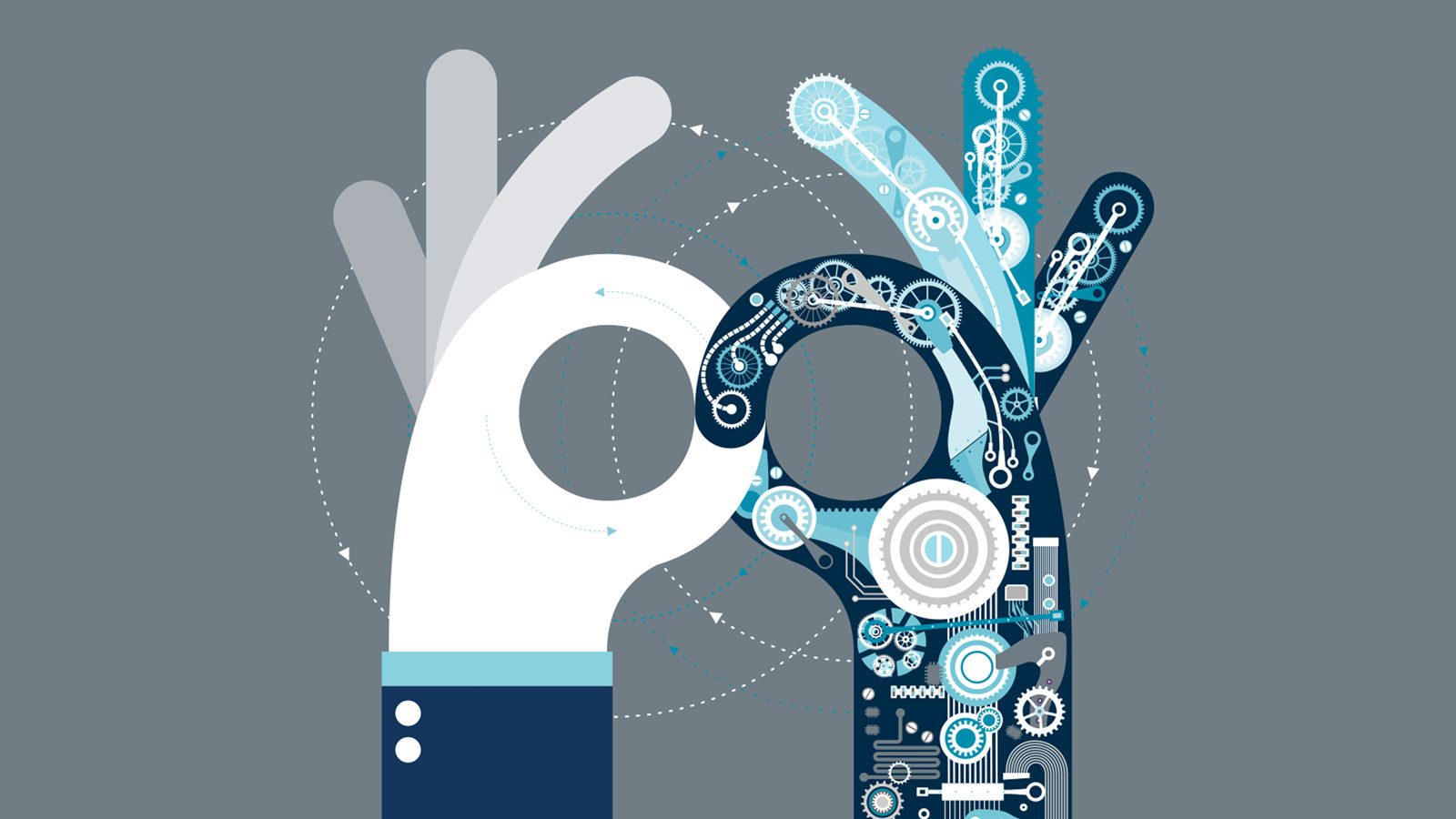Thanks to Robotic Process Automation (RPA), what was once fanciful science-fiction is now a reality, at least for routine tasks performed on a computer.
Automation for the people
Unless you happen to own or work in a multi-million-dollar modern factory a robot vacuum is likely the most sophisticated robot you’ve come across.
It turns out that it’s really, really hard to build robots that can do stuff in the physical world, like make a table or cook a meal.
But what separates a robot from any other machine is its software, not its hardware. Which means it’s far easier to create robots that just manipulate software in the digital world. And that’s handy, because routine tasks performed on computers – data entry, payment processing, order capture, bookkeeping, reporting – account for an awful lot of worker hours.
With RPA it is now possible to hire and train digital or software workers – robots – to take over a lot of those tasks. The benefits are not only reduced costs and errors but also, as we will see, happier human employees.
Software workers
RPA is software that mimics human users in order to automate certain tasks and processes. Once set up each bot is given usernames and passwords – just like a human user – to access the applications, databases, and other systems it needs to use. It is then trained by human operators to perform whatever tasks are necessary to automate the business process in question.
Training takes the form of the bot watching and recording what the human operator does in each application, such as where the mouse cursor goes, where the user clicks, what keys are pressed, and what is entered into various fields.
For example, it could be taught to open supplier invoices attached to emails just by clicking where a human user would click in the email software. It can then copy and paste the invoice details into the correct fields in the ERP or accounting software.
Doing this requires no integration of new software with the email client, ERP, or accounting package. It’s just a robot that’s been trained to use that software exactly like a human would. Except it’s more secure, more accurate, much, much faster, and never gets tired or takes a break.
There are several different kinds of RPA bots. Some are launched by humans to perform automated tasks as needed, called Attended Robots. For example, a contact centre agent could launch a script to populate a CRM database or process an order they just input.
Other bots run automatically, either all the time or when triggered by certain events, called Unattended Robots. For example, a bot could be set up to watch an email inbox for new invoices arriving, then save those attachments, open them and enter the details into the accounting software.
All watched over – by humans
Science-fiction movies would have you believe we are going to report to our robot masters. However, it’s the other way around. Machines are going to do much of the work – certainly the routine, boring parts – but their trainers, supervisors, and managers will be humans.
Only a very small percentage of jobs in the digital and knowledge economy can be 100% automated, or not automated at all. A McKinsey study showed that for over half of all occupations only up to 40% of the activities that comprise those jobs could be automated.

Our ability to understand nuance, solve problems, communicate clearly, and empathise with one another and that’s a formidable array of talents that businesses will not be able to do without for a long time to come.
The role of humans in businesses is certainly going to change however. It’s going to be more engaging, more interesting, perhaps even more challenging as more and more of the routine work gets done by bots. Humans are going to work alongside bots, train bots, operate bots, supervise them, and learn from them.
For example, if a bot fails to complete a task due to some exception it’s never encountered before, it’s going to escalate the problem to a human to solve. It’s also going to be humans that analyse the data collected by bots in order to decide how to redesign a process or a bot to make it work better. It’s the human contact centre agent who is going to solve the more difficult challenges for customers while the bot does the grunt work in the background and ensures the agent has the right information on their screen.
Everyone benefits
Technology changes people’s lives and behaviour. When electricity became widely available people changed their habits. The same has happened since the turn of the century with the internet and mobile phones. We are now entering the AI age of intelligent, autonomous machines and automation is going to be a cultural as well as economic imperative.
The benefits to businesses and their employees are wide-ranging, and the scope of their impact likely cannot yet be predicted, but they will include:
- Reduce the cost of doing business, delivering efficiency gains and cost-out opportunities,
- Empower your employees: Get your people excited about a more interesting role, now that you can free up their time and take over the boring stuff,
- Improve Customer Experience: Faster turnaround times benefiting both internal and external stakeholders,
- Reduce errors: to improve compliance and control, eliminating the cost of work duplication.
What’s more, RPA bots are easy to implement and their deployment can be line-of-business led, requiring minimal support from IT – meaning the people who are going to use the bots and benefit most from them can specify and build them.
To get started we recommend an analysis of your business and mapping of your business processes to identify candidates for automation in what we call a Discovery Process.

In our experience every business we have ever analysed, of any size, has multiple processes that RPA could help automate, thereby delivering cost and efficiency savings and making employees and customers alike very happy.
To learn more about Robotic Process Automation (RPA) and unleash your team from tedious and repetitive work, please contact Sherpa Works. Sherpa Works are proud specialists in the SME and Mid-market.
About the Author: David Barlow, Co-Founder and Commercial Director, Sherpa Works, is passionate about helping SMEs and Mid-market businesses experience outrageous success with their Bot workforce.



